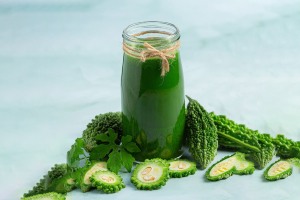

Mayonnaise is a common, creamy condiment that is readily available in supermarkets. It can be used to make sauces, spread over sandwiches, or combined with potato salad. It is even used to make hair masks. It is a staple ingredient in practically every kitchen because of its flavour and versatility. But, is mayonnaise healthy? Read on to learn all about mayonnaise ingredients and their effect on your health.
What Is Mayonnaise?
To make mayonnaise, eggs, oil, and a type of acid (typically vinegar or lemon juice) are emulsified. Emulsification is the process of mixing two or more liquids that wouldn’t typically mix together. Emulsions can be either temporary or permanent. Mayonnaise is a permanent emulsion. The emulsifier lecithin found in egg yolk keeps the mayo together. Commercial varieties of vegan mayonnaise may employ aquafaba – the viscous liquid left over after cooking or soaking chickpeas – instead of eggs.
Mayonnaise Ingredients
While dairy isn’t present in the majority of commercial brands, most of the mayonnaise ingredients might be:
- Soybean oil
- Eggs or the yolks of eggs
- Distilled vinegar
- Sugar
- Salt
- Concentrated lemon juice
- Herbs and spices, such as paprika, for colour and flavour
- Food additives and preservatives, such as calcium disodium EDTA
If you have dietary allergies, always check the nutrition label twice for an ingredient list. Be advised that certain mayonnaise-based sauces and dressings, including ranch, may contain dairy.
Is Mayonnaise Healthy?
Vitamin K, which is necessary for blood clotting, and vitamin E, which strengthens heart health, are two health-promoting nutrients found in mayonnaise ingredients. Additionally, it can be made with heart-healthy fats like omega-3 fatty acids, which support the health of your skin, heart, and brain. With 100 calories per tablespoon, mayonnaise is a high-fat, high-calorie condiment made primarily of oil. So, when choosing mayonnaise, keep your nutritional objectives in mind. Measure out how much mayo you eat and practise portion control if you’re following a low-fat or low-calorie diet. A person following a ketogenic or low-carb diet can eat mayonnaise more frequently. Even though mayo is almost entirely composed of fat, it is the type of fat that is healthier called unsaturated fat.
Mayonnaise Side Effects
There may be some health advantages of including modest amounts of mayonnaise in your diet. Eating it frequently or in big quantities, however, may pose health risks. Excessive use of mayonnaise has been linked to an increased risk of cardiovascular diseases. This is because mayonnaise ingredients contain a lot of cholesterol and saturated fat, both of which can lead to weight gain and elevated blood pressure. It may also result in an increase in gut bacteria development.
According to researchers, the saturated fat level and emulsifiers in mayonnaise, even in healthy varieties, can harm the liver and other organs. The liver is in charge of eliminating excess fat and toxins from the body; however, consuming high-fat foods like mayonnaise strains the liver further and impairs its function. Moreover, soybean, corn, or other vegetable oils high in omega-6 fatty acids are frequently found in mayonnaise. According to studies, an imbalance in the ratio of omega-3 to omega-6 fatty acids raises the risk of autoimmune illnesses, diabetes, cancer, osteoporosis, and heart diseases.
Conclusion
Mayonnaise is a commonly used and versatile condiment that is made using basic mayonnaise ingredients such as vinegar, oil, and eggs. It should be consumed in moderation to avoid any mayonnaise side effects, especially if you’re watching your calorie or fat intake, because it’s heavy in calories and fat even if it has some nutrients that are good for your health, such as vitamin K and omega-3 fatty acids. A healthy diet can include a small amount of mayonnaise, but excessive consumption can put your health at risk for problems including elevated cholesterol and liver strain.




